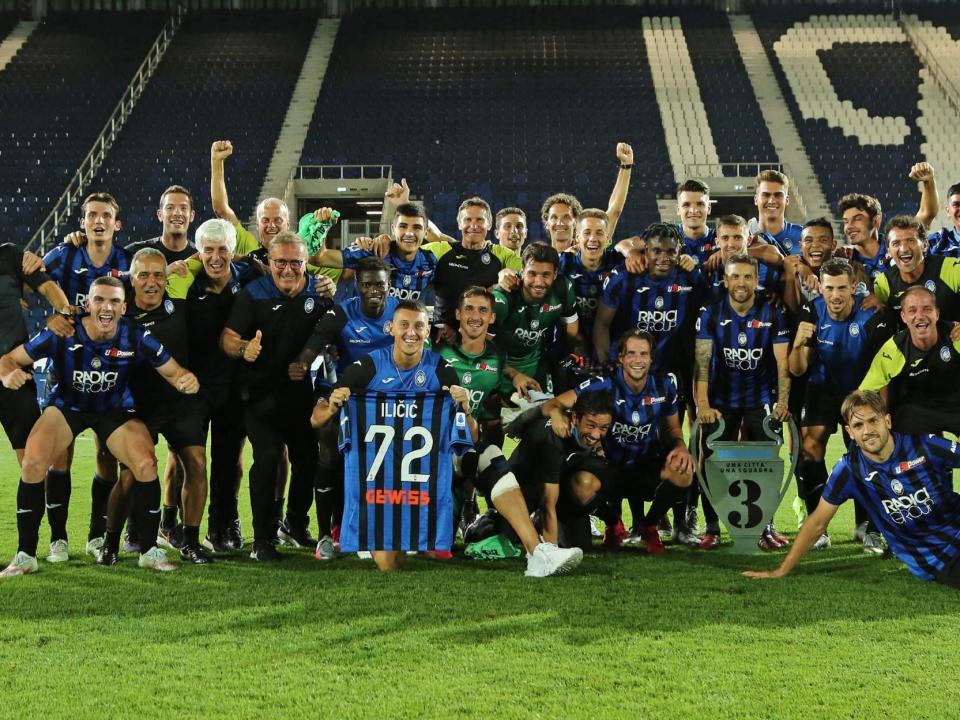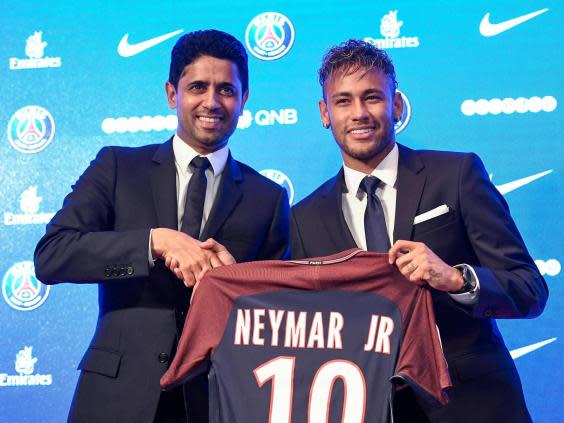Celebrating the joy of Atalanta, the story the Champions League needs

Over the last few days, Gian Piero Gasperini has had a clear message for his Atalanta squad, that is nakedly emotional. That is to “make the people of Bergamo smile again”. It has been a harrowing time for the city amid Covid-19, but that is still a mindset that comes easy to Atalanta’s players.
When they talk to people about what it’s like to play for the club, there’s one word – and one feeling – that stands out. That’s “allegria”, joy.
It is an emotion that seems increasingly rare in the elite club game, where their own country’s champions sack managers after a title win, and so many big clubs just exist with no prospect of progress. But then Atalanta are an increasingly rare story.
That joy doesn’t just come as a consequence of their success, but initially because of the source of that success. Principles of their game are that the players express themselves, have total courage, no doubt. Abiding images are the team running at opposition at full force, in a blur of energy. It has led to so much entertainment, and so many goals – 98 last season.
Given the club’s meagre resources relative to this level, as well as their recent history in Serie B, we’re talking about a story that is about as pure as you can get in the modern game. Atalanta are defying the odds. They are playing the right way.
The human element, and Gasperini talking about constantly hearing the ambulance sirens at the peak of the crisis, only emphasises that too.
Atalanta, in short, are the team you should want to win the Champions League. They are actually the story the Champions League itself needs. That is a feeling only fostered by how impure the competition is becoming.
Consider the current reality in contrast to Atalanta.
There is by now a strong argument the Champions League is a net negative influence on football. It generates huge money, but that money is unequally distributed, deepening a hugely damaging financial disparity. Those that go far get much more of it, making it all the more likely they will be the ones to go far in the future.
Paris Saint-Germain, Barcelona, Manchester City and Bayern Munich have all earned over €95m from this season’s runs to the last 16 alone. Needless to say, this is the type of money that would be utterly transformative for the majority of teams in their domestic leagues. The €57m Atalanta have received is already more than a third of their annual revenue.
It says much that a story like Ajax 2018-19 was considered a “miracle”, even though they have won the competition four times, and remain one of the world’s most valuable clubs. And they only got to the semi-finals. This is the depressing new reality.
The Champions League is thereby becoming self-perpetuating, solidifying a group of super-clubs that are eroding the unpredictability of the game. It has certainly been a huge factor in creating this situation where clubs like Juventus and Paris Saint-Germain utterly dominate their domestic leagues, to the point they’re no longer even really content with winning them.
Even the supposed “freshness” of this quarter-final involves clubs solely from the big five leagues, with one of the perceived upstarts – Leipzig – part of a global network under a massive drinks brand.
The consequent growth of these super-clubs has similarly attracted wider interests, since their sheer size and global visibility has a political value. This is a huge reason why states have attempted to buy clubs, raising all manner of moral questions about sportswashing, and how football is used.

The season is now set up for the culmination of all of this. The draw has laid a path where the final could be contested by the two wealthiest clubs in the world in Manchester City and PSG, which would also be a match between two states who are on either side of an economic cold war.
It would be Abu Dhabi versus Qatar as much as City against PSG. Football’s global showpiece event would be a showcase of all of its many problems. Standing in the way of this, literally as much as figuratively, are Atalanta.
They face PSG in this quarter-final that represents such a dichotomy, and almost a grand philosophical battle; a tie that is as much about the soul of football.
Atalanta’s presence in the final, or mere elimination of PSG, would be the total opposite to such a culmination. The Italians don’t just stand in contrast to all of this, as well as PSG, mind.
This all points to how their story really shouldn’t be possible in the modern Champions League. They are already the smallest club to reach the quarter-finals since APOEL in 2012. The dimensions mean Atalanta winning the trophy would be the most incredible victory the modern competition has seen. It would be far more improbable a feat than FC Porto 2004, and really the closest to Nottingham Forest in 1979.
What is so invigorating about Atalanta is that they haven’t achieved this through defensive “small team” football that seeks to play the percentages, to reduce the odds. It is the opposite. They open out, seek to impose their game, go toe to toe. That is where the “courage” comes in.
Despite a squad devoid of stars and assembled for so little money, they are willing to go one on one all over the pitch.
It is why the one-off knock-out matches have only fired their confidence further. They know anything can happen in any one game, and it’s more likely if you actively try and make things happen.
Gasperini has been repeating a Sun Tzu mantra to his team. “Defending makes you invincible, but if you want to win, you must attack.”

That recruitment represents another difference to so many super-clubs.
Whereas many of the biggest now hire coaches that are more emotional facilitators for stars rather than managers – with Andrea Pirlo’s appointment the latest case in point – Atalanta are the total opposite. They only sign players who are totally committed to the idea and the amount of work.
This is how they can maximise their ability. This is how they work so hard in training, so that matches feel like “days off”, and they run teams ragged. As many as 15 of their 98 goals have come after the 80th minute of games.
Argentine playmaker Papu Gomez almost personifies much of this, at last offering elite influence late in his career at the age of 32, because Gasperini has made him realise the benefit of hard work.
That attitude runs right through the team, so energy and danger arise in any area, and with so many players – Josip Ilicic, Luis Muriel, Duvan Zapata.
It is why they are such a serious threat to PSG. It is why they are an antidote to much of modern football.
It is not just the city of Bergamo that needs this story. It is the Champions League that needs it, too. The real joy is that watching Atalanta will just make you want them there.
Read more
Champions League’s sudden death format offers chance of a lifetime

 Yahoo News
Yahoo News 